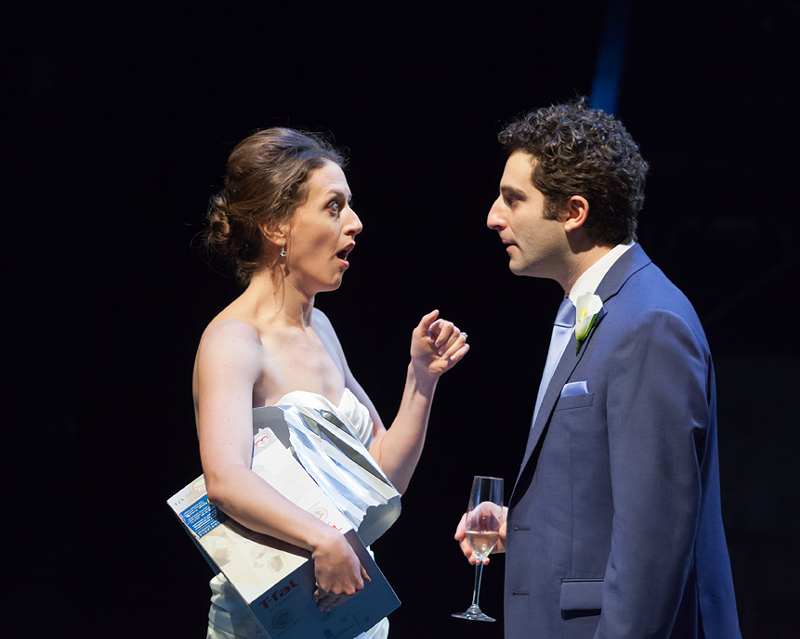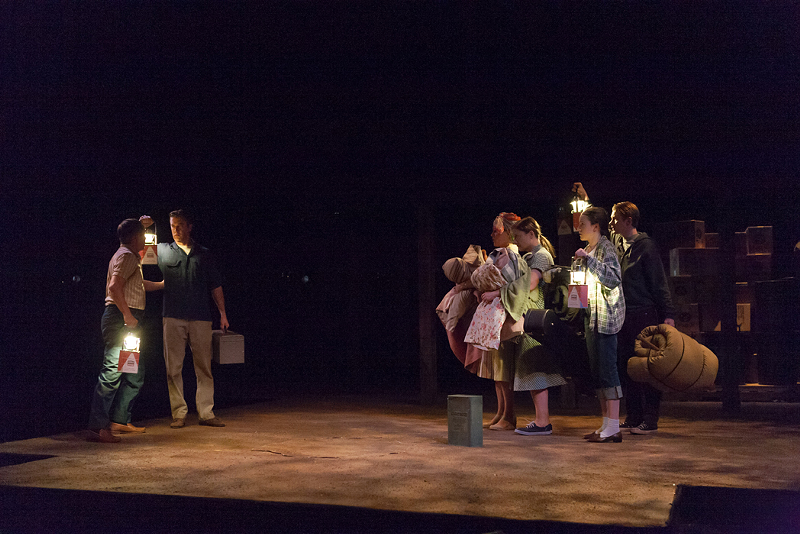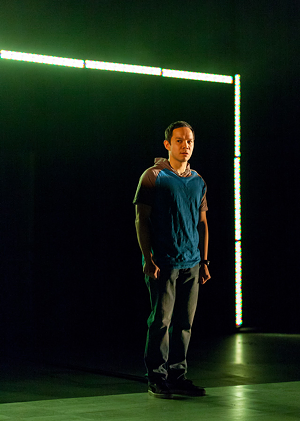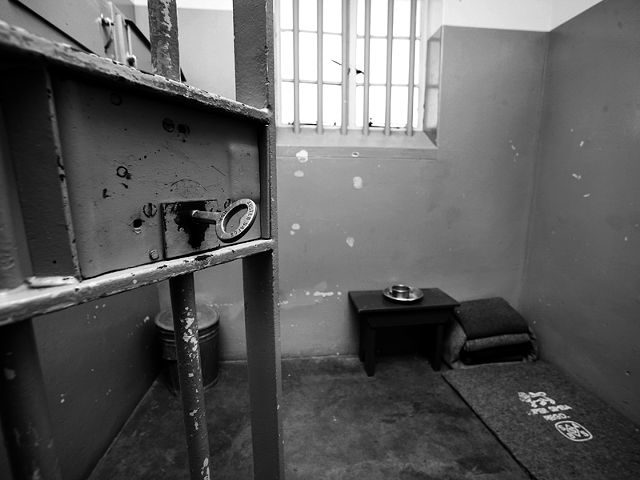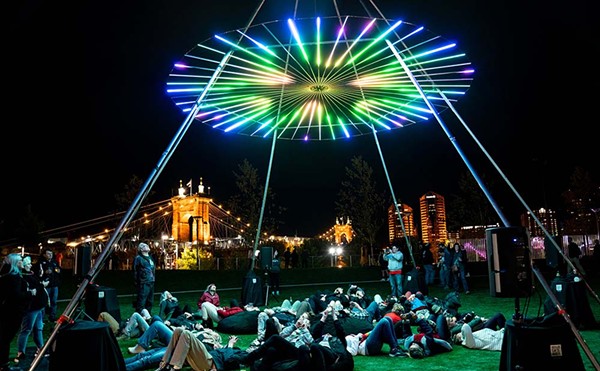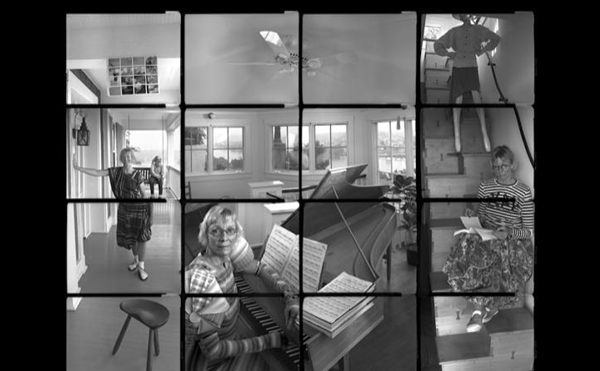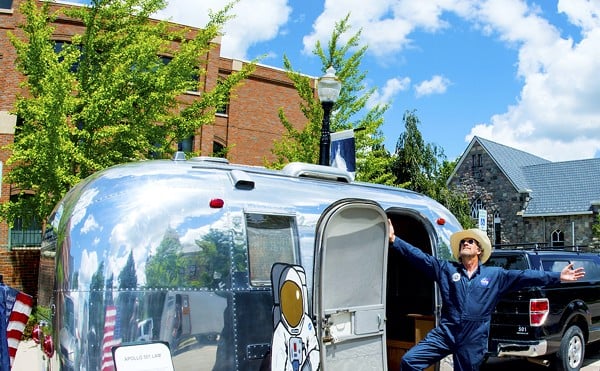Tasha Gordon-Solmon’s I Now Pronounce has a simple premise: A wedding goes off the cliff when the officiating rabbi collapses and dies during the service. We don’t witness his death; he has an opening monologue, then we skip to a scene of two bridesmaids trying to coax the bride who has locked herself in a country club restroom because her perfectly planned wedding day has been demolished. What follows are a series of blackout scenes in which all involved — the bride and groom, the groomsmen, the bridesmaids and a trio of flower girls — spin out of control.
There’s a lot of humor in this show. We learn that the happy couple isn’t happy at all, as Nicole, the bossy bride (Alex Trow), scolds Adam (Ben Graney), her passive-aggressive mate-to-be. The bridesmaids have a lot of issues; one (played by Satomi Blair) had an indiscrete affair with the groom, and the other (Clea Alsip) is so self-centered she can’t stop drinking and making indiscrete observations. The groomsmen aren’t really supportive; Seth (Forrest Malloy) learns his wife is filing for divorce; Dave (Jason Veasey) doesn’t believe in marriage or weddings. The sweet flower girls (Carmen Tate, Mary Charles Miller and Brylee Deuser) have their own concerns, including fearing the ghost of the rabbi and eavesdropping on some seriously bad adult behavior.
If all this sounds like a lot of hilarity, well, it is. But it’s almost too much of a good thing, ultimately feeling like a series of TV sitcom episodes, distilled to one 90-minute play. In fact, I Now Pronounce had three (maybe four) moments when it seemed to be ending, only to go on to one more scene. The script felt like one that needs to be trimmed and focused, rather than allowed to continue spilling over again and again into rather predictable — but laugh-out-loud — moments.
The solid cast, especially Clea Alsip and the never-quite-focused Michelle waiting for a more or less imaginary date with the ambulance driver, are all actors who handle the humor well. But I do wish that playwright Gordon-Solmon and director Stephen Brackett had had more time to work with Actors Theatre’s able literary department to tinker with and refine a promising script.
Basil Kreimendahl’s We’re Gonna Be Okay is set in 1962, just in advance of and during the Cuban Missile Crisis when anxious Americans tried to assuage their anxiety about nuclear destruction by building bomb shelters. A pair of families living side-by-side — one blue-collar and pragmatic, the other more affluent and chipper — decides to share a hole in the ground. That’s really a pressure cooker, and it leads to some serious exploration of anxiety that feels both pertinent and applicable to life in 2017.The first act is about the negotiation and construction of the shelter, motivated by Efran (Sam Breslin Wright), the more well-off husband. His wife Leena (Kelly McAndrew), who sees the bright side of everything, isn’t quite convinced, but she goes along with Efran’s paranoid concerns as he recruits Sul (Scott Drummond) and his gloomy wife Mag (Annie McNamara) to help him. Their teenage kids (Anne-Marie Trabolsi and Andrew Cutler) have a disdainful take on the project because they have nothing in common beyond disliking one another and really don’t want to be trapped together.
During the show’s intermission, which immediately follows the families listening to President Kennedy’s national speech about the threat posed by Russian missiles established in Cuba, their cookie-cutter houses are dismantled and the stage is converted into the underground shelter for Act II. (Stagehands, members of Actors’ Professional Training Company wearing hardhats and coveralls, earned a round of applause for the startling changeover.)
Kreimendahl’s play darkens considerably in the second act, moving beyond the clichés that amusingly portrayed attitudes in the first act. Now in the pressure cooker, believing that nuclear holocaust has occurred, Efran comes nearly unhinged, Mag and Leena both expand their takes on marriage and feminism, Sul struggles to keep order and the teens wrestle with their secrets and differences. The tonality of action and dialogue changes to a more hysterical level, and the play’s sardonic title suggests that things will definitely be okay. This script felt like a play that needed either some further writing or direction that made the evolution from Act I to Act II a tad more plausible.
Jorge Ignacio Cortiñas’ Recent Alien Abductions opens with a monologue of nearly 20 minutes by Álvaro (Jon Norman Schneider), a Puerto Rican teen obsessed with a lost episode of the TV series The X-Files. You don’t need to know very much about that long-running TV series (it aired 1993-2002) to follow his paranoid concerns. The gist of his commentary is that he has no one he can trust, very much like Fox Mulder, X-Files’ lonely conspiracy theorist.Once he finishes his long speech, Álvaro vanishes, and Cortiñas’ play jumps ahead 23 years to present-day Puerto Rico and a confrontation between Álvaro’s friend Patria (Ronete Levenson) and his family, who he tries to convince — especially his older brother Néstor (Bobby Plasencia) and their now demented mother Olga (Mia Katigbak) — to grant permission to publish a collection of the young man’s stories, written after he fled the island for life as a gay man in New York City.
Álvaro’s family has many secrets, wounds and ancient grudges that crept into his stories, and they complicate Patria’s request, and her presence becomes a catalyst for a violent physical confrontation and some shocking revelations about the family’s history. This is entwined with tales of Los Macheteros (“The Machete Wielders”), a clandestine terrorist group of Puerto Rican freedom fighters with which Álvaro had some involvement. The history of the territory’s complex relationship with mainland America becomes a metaphor for Álvaro’s plight. The play is ultimately about family histories and how they are shaped and change over time — sometimes to hide embarrassments, sometimes to justify old actions.
Playwright Cortiñas offered this remark in a feature published by Actors Theatre: “I’m always interested in how the historical moment we are born into creates for us a series of possibilities and limitations within which we can build a life. We never get to choose the language and alphabet we’re bequeathed. But what the writer attempts is to combine that alphabet into some kind of poetry or story that opens up a little more space, right?”
The play, characterized by festival publicity as a “darkly compelling drama,” is artfully written, but has a disjointed feeling that makes it sometimes tough to piece together its various levels of meaning. Nevertheless, as staged by Les Waters (Actors Theatre’s artistic director), Recent Alien Abductions had a strong impact on the audience I sat in: The woman next to me wept audibly as the story concluded, and many in attendance gave the show a standing ovation.
Actors Theatre annually assembles a production to showcase the work of actors in its “Professional Training Company. As in the past, a set of playwrights are given an overarching concept and are invited to write short scenes that revolve around that theme. The Many Deaths of Nathan Stubblefield featured writing by Jeff Augustin, Sarah DeLappe, Claire Kiechel and Ramiz Monsef in 11 distinct sections. Stubblefield (1860-1928) was a Kentuckian who described himself as a “practical farmer, fruit grower and electrician.” In 1902 he demonstrated a battery-operated wireless telephone for which he received a patent. However, he never succeeded in commercializing his invention.
Accordingly, this anthology play focuses on innovators who are, as stated in the program, “one invention away from hitting the big time.” One of Kiechel’s sections, “Thomas Edison Tries to Write a Play,” focuses on the brief time the inventor lived in Louisville. Monsef’s “Batson” dug into a U.S. Supreme Court decision that dismissing jurors with a peremptory challenge could not be used to exclude the based solely on their race. DeLappe’s more lighthearted “I Will Survive” briefly traced the rise and fall of Disco. Agustin’s sections, especially “Labor to Be Heard” about the challenges of coal mining, gave further historical context.
The young actors are given many opportunities through a production like this to showcase their talents. The quick, fragmented pace from one episode to another left some in the audience a bit adrift as to the overall point, but The Many Deaths of Nathan Stubblefield was an often compelling set of performances.
One final highlight of the festival is the presentation of “The Ten-Minute Plays,” given two performances on the final weekend. This year’s works — Home Invasion by Krista Knight, The New Line by Will Eno and Melto Man and Lady Mantis by Eric Pfeffinger — did not strike me as up to past standards. Knight’s piece, an odd ghost story, felt overlong even at 10 minutes. Eno’s inert monologue by a fashion designer that kept branching out into social commentary was not easy to follow. Pfeffinger’s piece transposed an epic monster battle into the setting of a mundane modern office. It’s one joke made for some hilarious conflicts, but the point of it all was lost on me.

